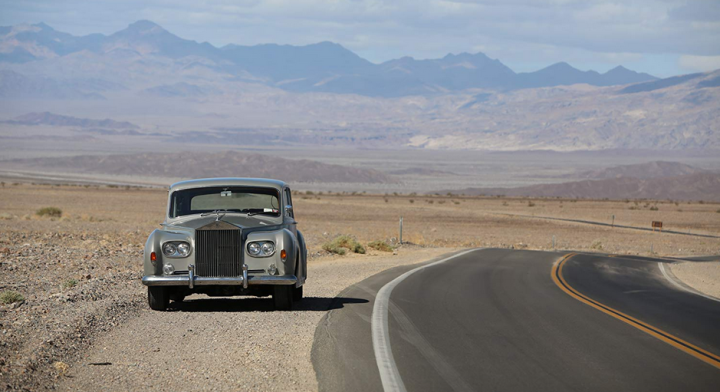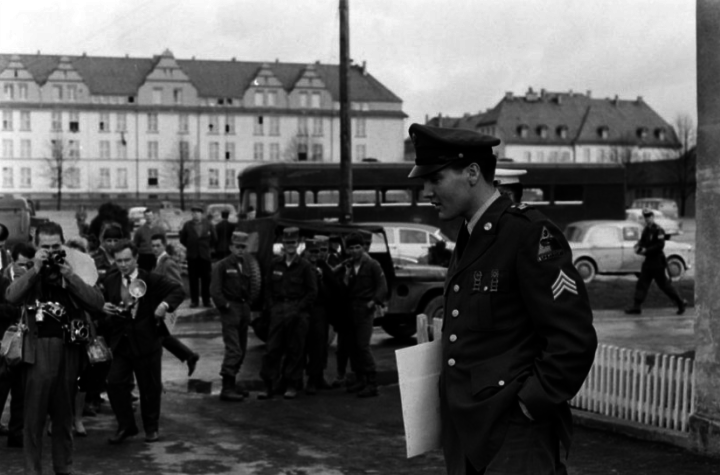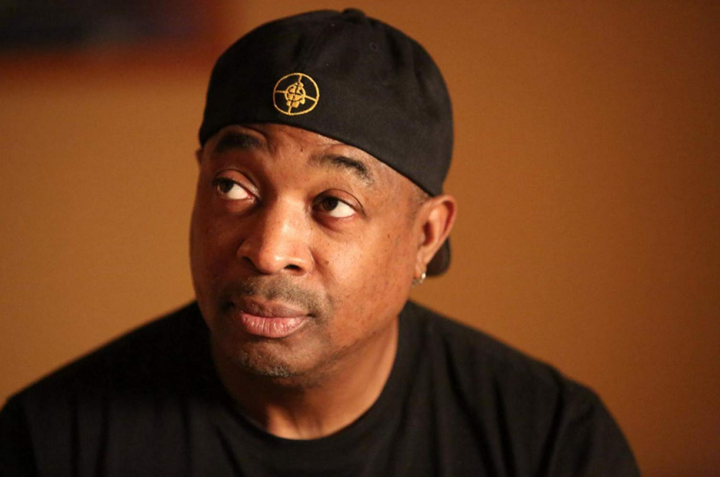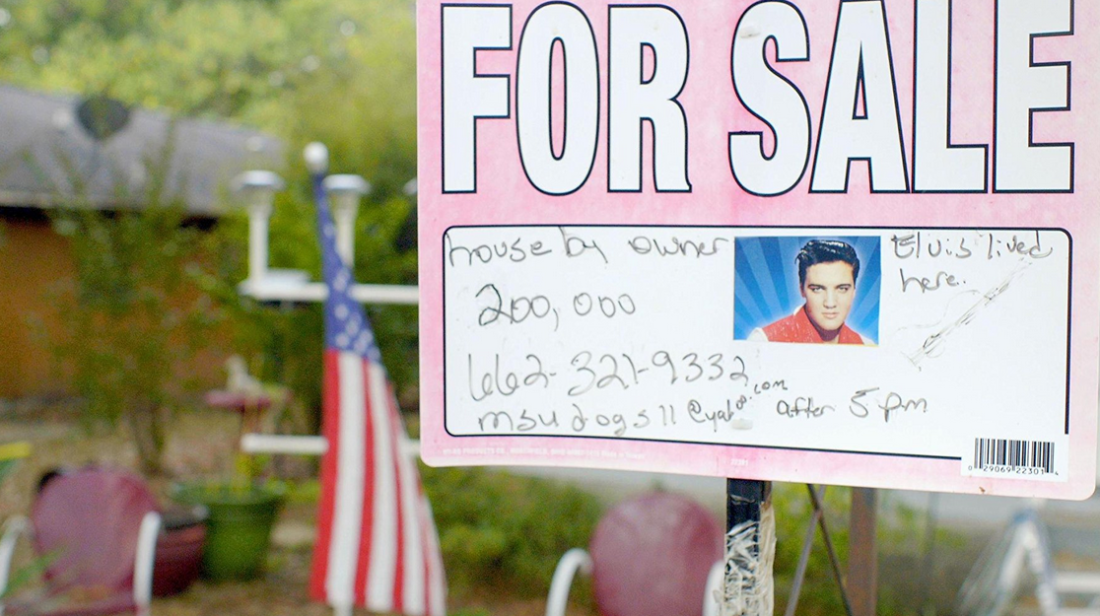There is a moment late in Eugene Jarecki’s The King that shows the entire production in microcosm. An American movie star sits in the front seat of Elvis Presley’s famous 1963 Rolls Royce exposing a harsh, uncomfortable, but also altogether unremarkable truth about himself. He sits for several seconds contemplating his own place in the world and comes up with something that we, as an audience, have taken for granted for years. It’s the level of self-examination and humility being displayed that makes the scene. And it proves that Jarecki, as he has done sporadically throughout his career, is still capable of pulling a great moment seemingly from thin air.

It’s truly disheartening, then, that the rest of the film surrounding this standout blink-of-an-eye bit of brilliance is as jumbled and confusing as anything I’ve seen this year. Setting his sights on the life and times of The King of Rock ’n’ Roll as a template against which to set his treatise on the death of the American Dream, Jarecki fumbles time and again. It’s not even that this idea has been done to death or that Elvis himself isn’t the most relevant of historical figures to focus on these days. The bigger question is how clearly the director thinks this big idea is getting across to his audience. Because, sure, I get it. Chuck D even makes it plain when he says, “If America is Elvis, then Elvis is O.D.-ing.” But that’s an easy one.

Are we really to take at face value that John Hiatt crying at the mere concept of sitting in a car once owned by Elvis holds the same weight as the insidious master plan allegedly put into motion by Col. Tom Parker to suck Presley into a Faustian deal for the ages? I honestly can’t tell. And I don’t believe Hiatt for a second. Nor do I think there’s anything at all behind the choice to prop Dan Rather up and have him recite “America the Beautiful” from atop the Empire State Building other than Jarecki cynically playing to the white liberal cheap seats. It’s a film with too many ideas and too little narrative direction, tossing out random and increasingly toothless political philosophizing before cutting back to whatever Elvis was doing at any given point in his life, eventually forgetting its own premise that these two arcs are supposed to be syncing up in some kind of interesting or meaningful way.

It has to be said, though, that the film’s editing is the best thing about it. Despite the wonky continuity of the thesis itself, some superb little bits pop out here and there simply by juxtaposing specific shots. It’s a feature-length montage, spinning a story all its own throughout the running time that would have (and should have) made the film one of the best of the year if only the film could keep up with itself. But even as the left-hand path of the editing bay weaves a satisfying tonal dissonance, the filmmakers still end up stepping on their own feet. It’s the inverse of the moment I describe in the first paragraph, illustrated by the mere presence of Chuck D. For a man who once said all he had to say about Elvis in two sentences 30 years ago, asking him to now explain himself at length only serves as a lesson in how not to tell a story no one asked to hear in the first place.
Rated R for language. Now playing at Grail Moviehouse.




Before you comment
The comments section is here to provide a platform for civil dialogue on the issues we face together as a local community. Xpress is committed to offering this platform for all voices, but when the tone of the discussion gets nasty or strays off topic, we believe many people choose not to participate. Xpress editors are determined to moderate comments to ensure a constructive interchange is maintained. All comments judged not to be in keeping with the spirit of civil discourse will be removed and repeat violators will be banned. See here for our terms of service. Thank you for being part of this effort to promote respectful discussion.